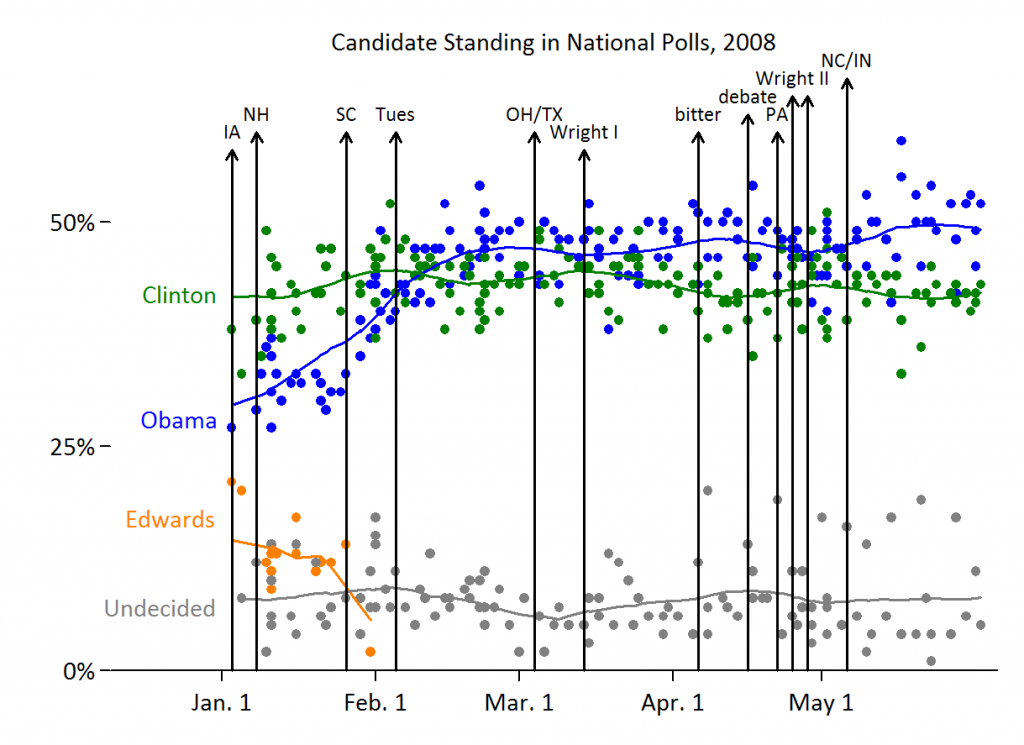You can mark my prediction now: A secret recording from a closed-door Mitt Romney fundraiser, released today by David Corn at Mother Jones, has killed Mitt Romney’s campaign for president.
It’s rare when the impact of some gaffe or embarrassment or revelation isn’t overstated on first blush. But this may just be that rare exception. This tape strikes me as absolutely devastating.
Whoa, whoa, whoa. Hasn’t the 2012 campaign taught us not to jump the gun with various “gaffes”? (Yes, I will be using scare quotes throughout.) In fact, didn’t the 2008 campaign teach us this too? Here is my old graph with the 2008 Democratic primary polls, noting Obama’s comment about “bitter” voters who “cling to guns or religion or antipathy to people who aren’t like them or anti-immigrant sentiment or anti-trade sentiment as a way to explain their frustrations.”

No movement in the polls after the story broke. Let’s do some from the 2012 general election thus far:
No discernible or certainly consequential movement because of Obama’s two “gaffes.” The only movement after Romney’s comments about the Libya attack is in his favor, thanks largely to the probably inevitable tightening after Obama’s convention bump.
The best case for saying that “gaffes matter” is that actual voters are persuaded to change their minds because of the gaffes. If they don’t, then it’s tough to argue that “gaffes” are really “game-changers.” And, in fact, usually voters don’t change their minds. See, for example, Michael Tesler’s and my analyses of the impact of “the private sector is doing fine.”
The best argument you can make about these gaffes is sort of a woolly counterfactual: “Well, if it hadn’t been for the release of Romney’s video today, Romney would have been able to accomplish X, Y, and Z, which would have helped him win the election.” Like any counterfactual, there is some plausibility — yes, Romney would rather talk about the unemployment rate than these comments.
But like any counterfactual, it’s predicated on assumptions about what the world would have looked like without these comments. And given the tenuousness of any such assumptions, and the (at best) small effects that single events in any presidential general election campaign tend to have, I would stop well short of calling this video “devastating.”
Many a news cycle was built on a “gaffe” with a remarkably short shelf life.



